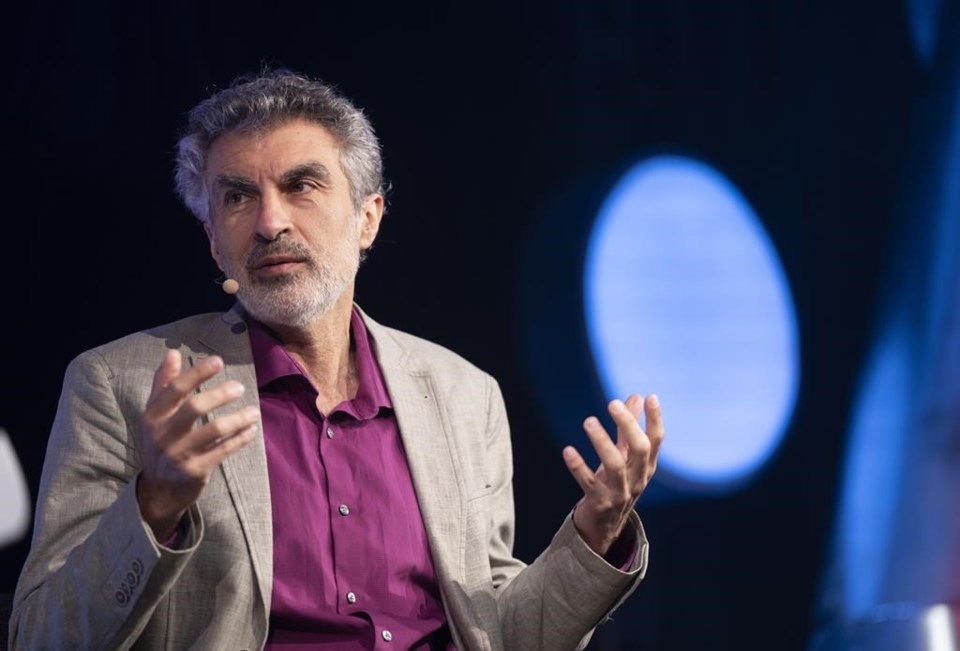MONTREAL — Artificial intelligence pioneer Yoshua Bengio says regulation in Canada is on the right path, but progress is far too sluggish.
Speaking in Montreal, the Université de Montréal professor said he backed a bill tabled in the House of Commons last June that adopts a more general, principles-based approach to AI guardrails and leaves details to a later date.
However, Ottawa has said the act known as Bill C-27 will come into force no sooner than 2025.
"That's way too slow," Bengio told reporters Wednesday. "There are simple things that could happen that don't need two years to be figured out."
He is calling on the federal government to begin rolling out rules immediately against certain threats, such as "counterfeiting humans" using AI-driven bots.
"The users need to know that they're talking to a machine or a human. Accounts on social media and so on need to be regulated so we know who's behind the account — and it has to be human beings most of the time," said Bengio, who in 2019 won the Turing Award, known as the Nobel Prize of the technology industry.
Criticized as vague by some legal experts, the Liberals' Artificial Intelligence and Data Act lays out a framework for responsible AI development that aims for agility amid the technology's constant evolution.
The law, part of a broader bill on consumer privacy and data protection, would ban "reckless and malicious" AI use, establish oversight by a commissioner and the industry minister and impose financial penalties. But definitions around key terms such as "high-impact AI systems" and specifics on how they would have to adhere to human rights laws would be developed down the line.
Even after it takes effect, the act would focus initially on education, guidelines and helping businesses comply voluntarily.
"The government intends to allow ample time for the ecosystem to adjust to the new framework before enforcement actions are undertaken," the Department of Innovation, Science and Economic Development states in a companion document to the bill.
The stakes could hardly be higher.
Addressing the C2 Montreal creative business conference alongside Yuval Noah Harari, Bengio agreed with the historian and author's warning that AI systems pose an "existential risk to humanity" and democracy.
Harari, who wrote the book Sapiens: A Brief History of Humankind, said the pace and magnitude of generative AI development exceeds technological leaps from previous eras.
“We are dealing with something even more powerful than the trains and radio and electricity that we invented in the Industrial Revolution. I think there is certainly a way to build good societies with AI, but it will take time," Harari said via videoconference, cautioning that "failed experiments" could leave no room for "a second chance — we won't survive it."
In March, he and Bengio joined more than 1,000 artificial intelligence experts in calling for a six-month pause on training of AI systems more powerful than GPT-4 — the large language model behind San Francisco-based OpenAI's ChatGPT.
Co-signatories included engineers from Amazon, Google, Meta and Microsoft as well as Apple co-founder Steve Wozniak and Rachel Bronson, president of the Bulletin of the Atomic Scientists.
"If the AI of today is like an amoeba, just imagine what a T. rex would look like. And it won't take billions of years to get there," Harari said during the chat with Bengio and CTV News chief political correspondent Vassy Kapelos, who interviewed them on a stage backed by a giant, primitive robot emerging from the riser at the Queen Elizabeth Hotel.
Propaganda, disinformation and “personalized trolls that could convince you to vote” a certain way all present challenges to liberal democracy over the coming decade, Bengio said.
All the more necessary to introduce guardrails "as soon as possible," he added.
“We need to face the dangers — the sooner the better."
This report by The Canadian Press was first published May 24, 2023.
Christopher Reynolds, The Canadian Press




